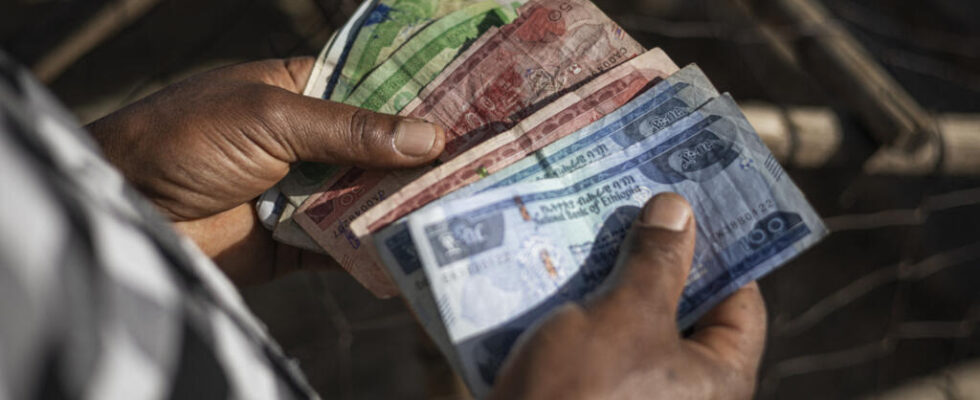The Central Bank of Ethiopia (NBE) announced on July 29, 2024 a major reform of the exchange rate regime. Thanks to this change in a system that was until now ultra-locked, the country obtained the validation by the IMF of a $3.4 billion aid program in its favor. This signals the end of an artificial overvaluation of its currency.
1 min
L’Ethiopia liberalizes its exchange rate regime : On Monday, July 29, the Ethiopian central bank let the national currency, the birr, float, which plunged by 30% against the dollar. Ethiopian banks are now allowed to sell and buy foreign currencies to their customers and among themselves at freely negotiated rates.
It’s the end of a strict exchange controls which artificially overvalued the birr, and which encouraged Ethiopia to import more than it could afford. This had led it to default on its debt last December.
This monetary reform was one of the conditions of the International Monetary Fund (IMF) for the granting of a new loan of 10.5 billion dollars, eagerly awaited by an Ethiopia short of financing.
The fall of the national currency is indeed supposed to calm imports and, on the contrary, boost exports, to make the trade balance surplus. It should also make it possible to attract more foreign investments in dollars or euros, something that the Ethiopian government has struggled to do since the end of the civil war (2020-2022).
Negotiations nevertheless dragged on between the IMF and the authorities in Addis Ababa, the latter fearing the impact of a fall in the currency on the purchasing power of Ethiopians.
Read alsoOur file – Ethiopia, return to the war in Tigray
